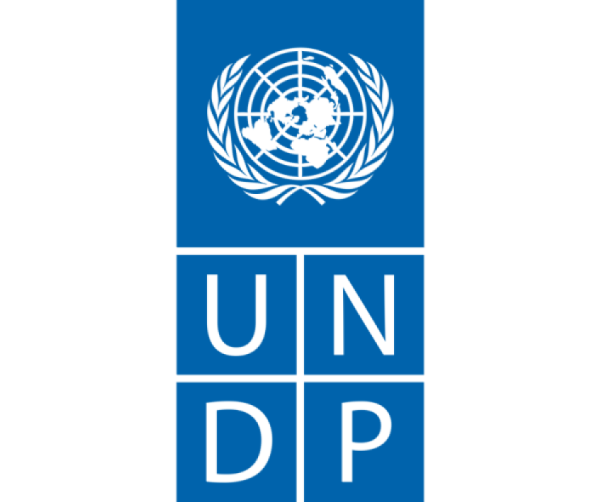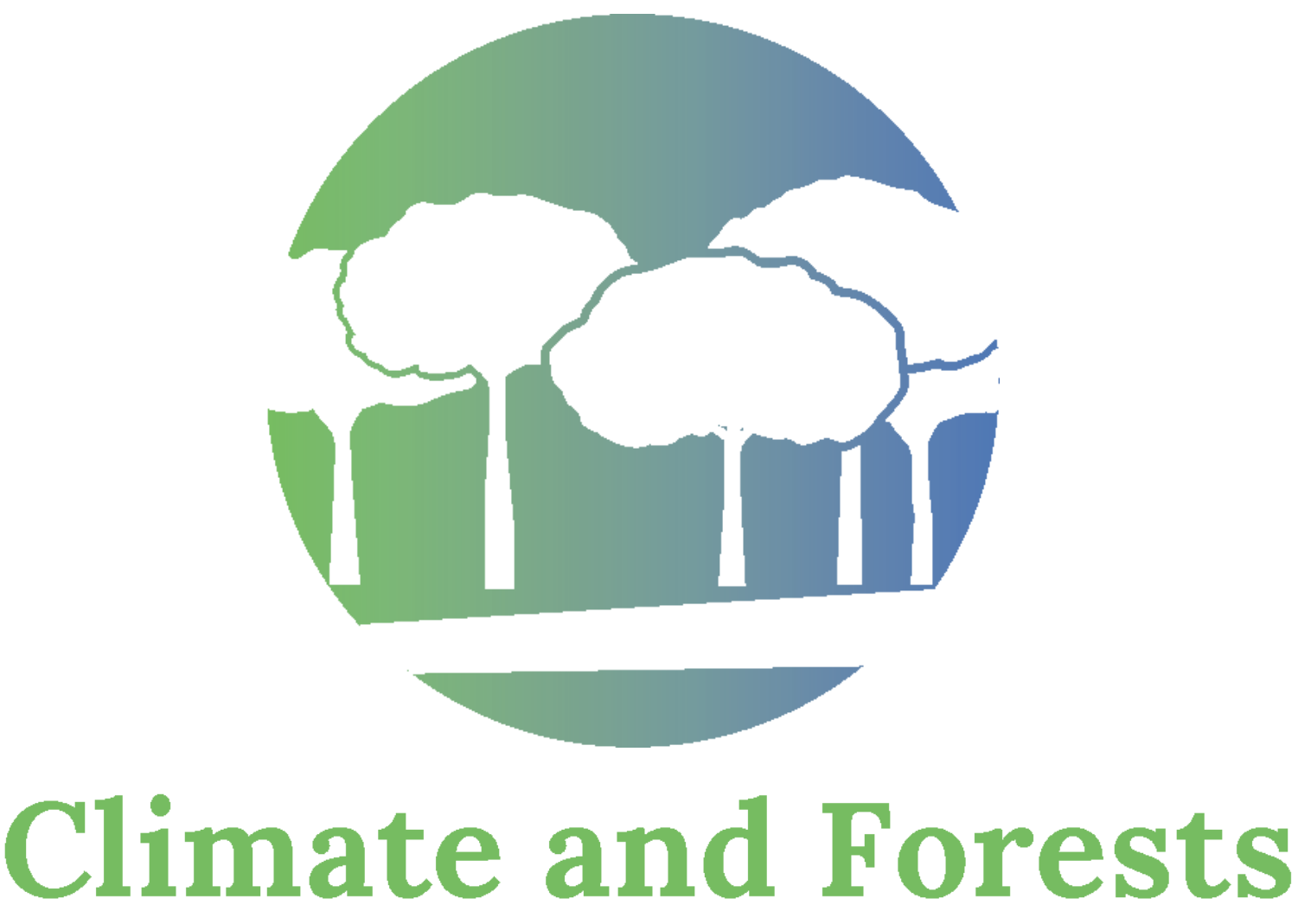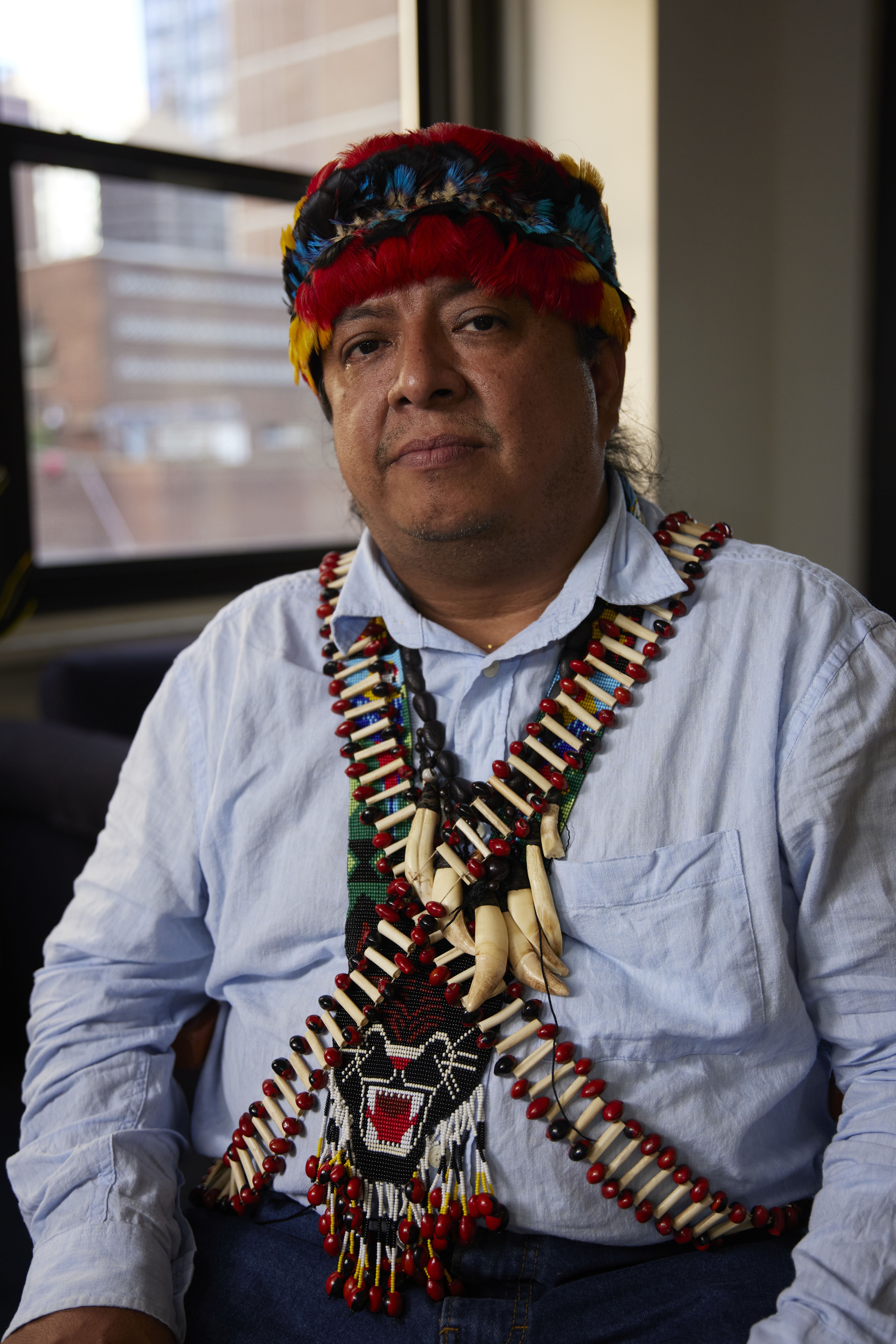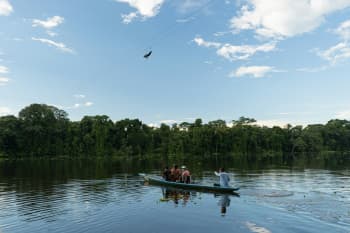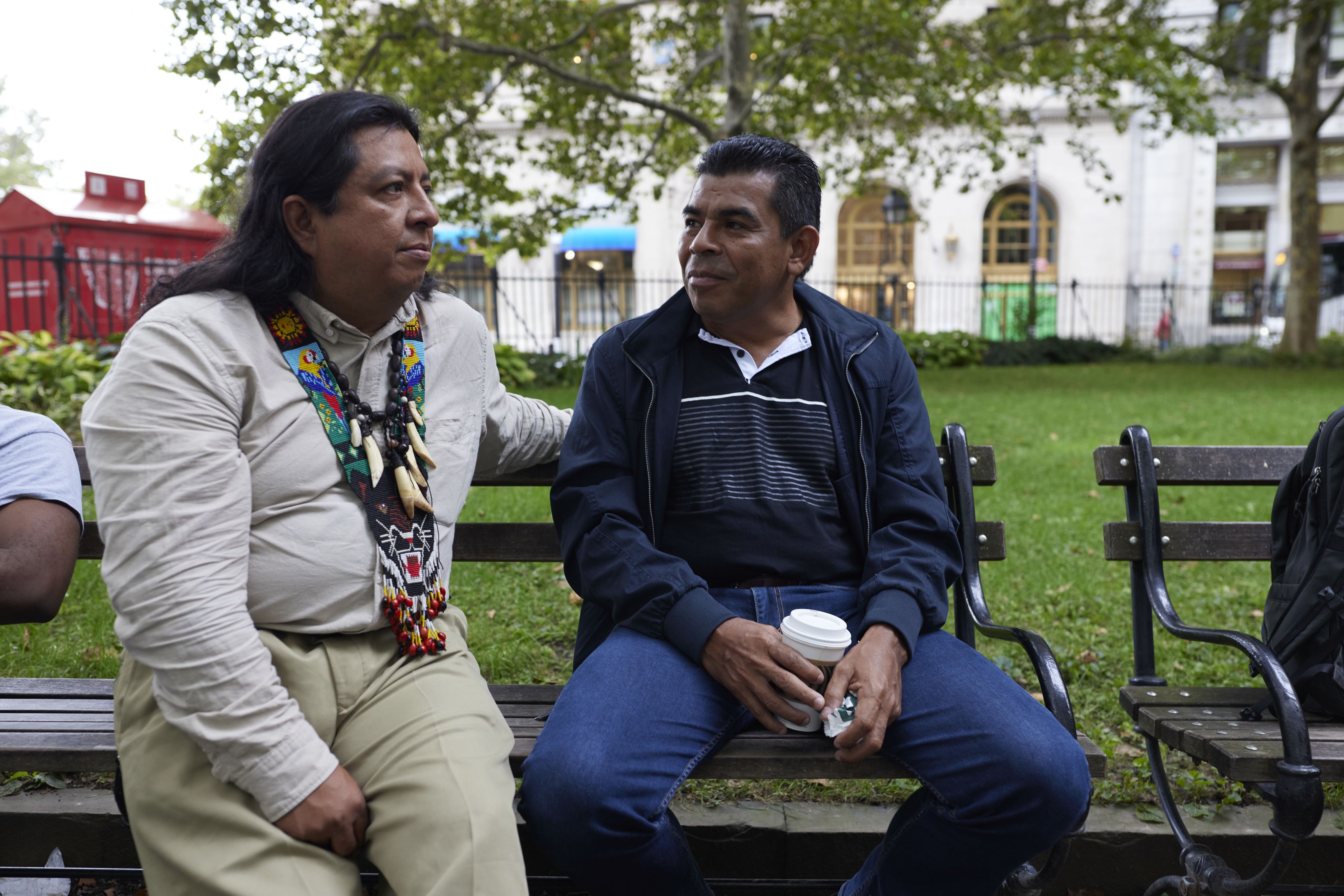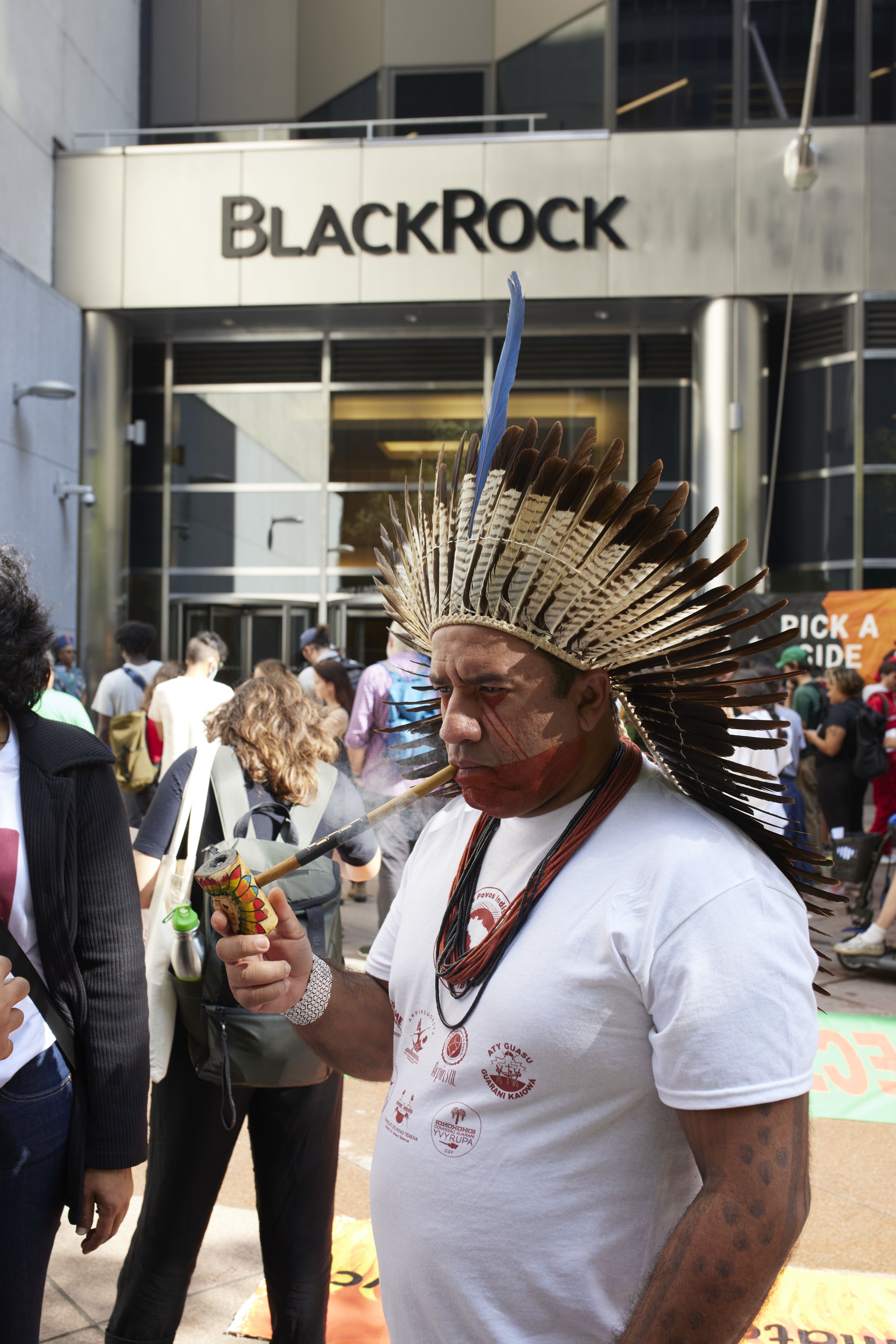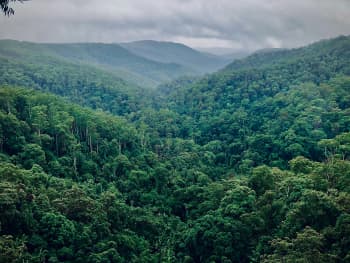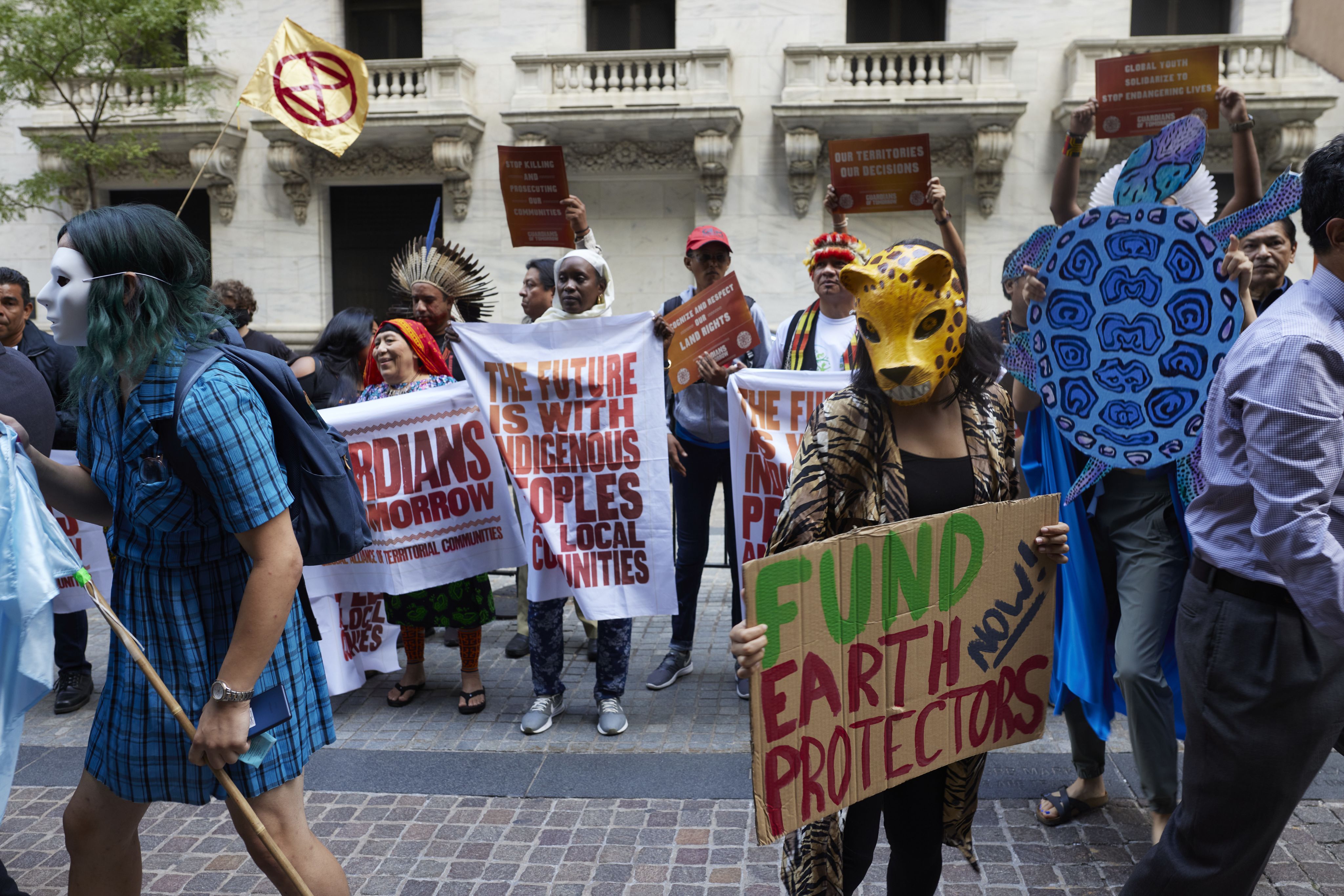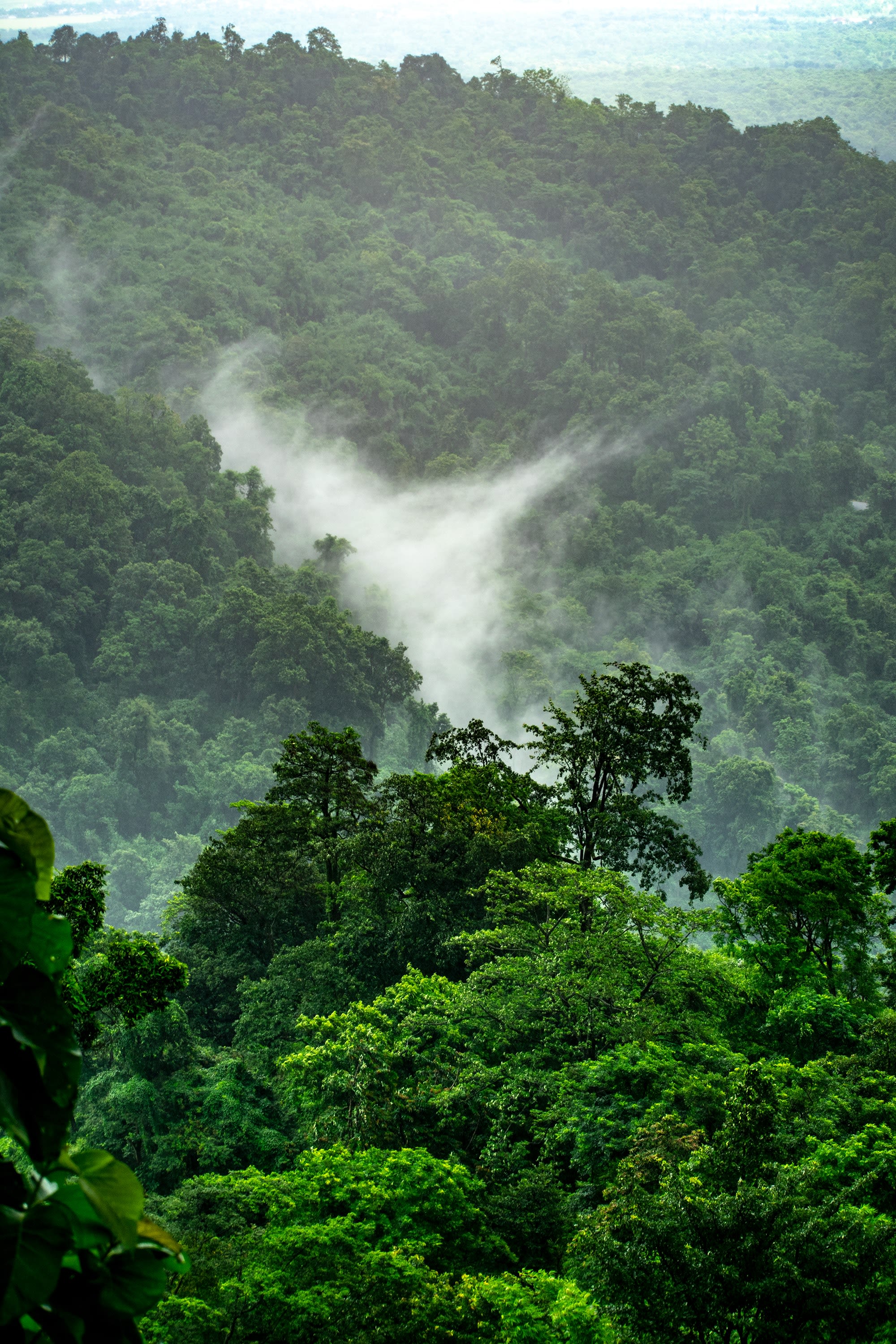“The time for action is now”:
Juan Carlos Jintiach on climate change, Indigenous wisdom and global collaboration
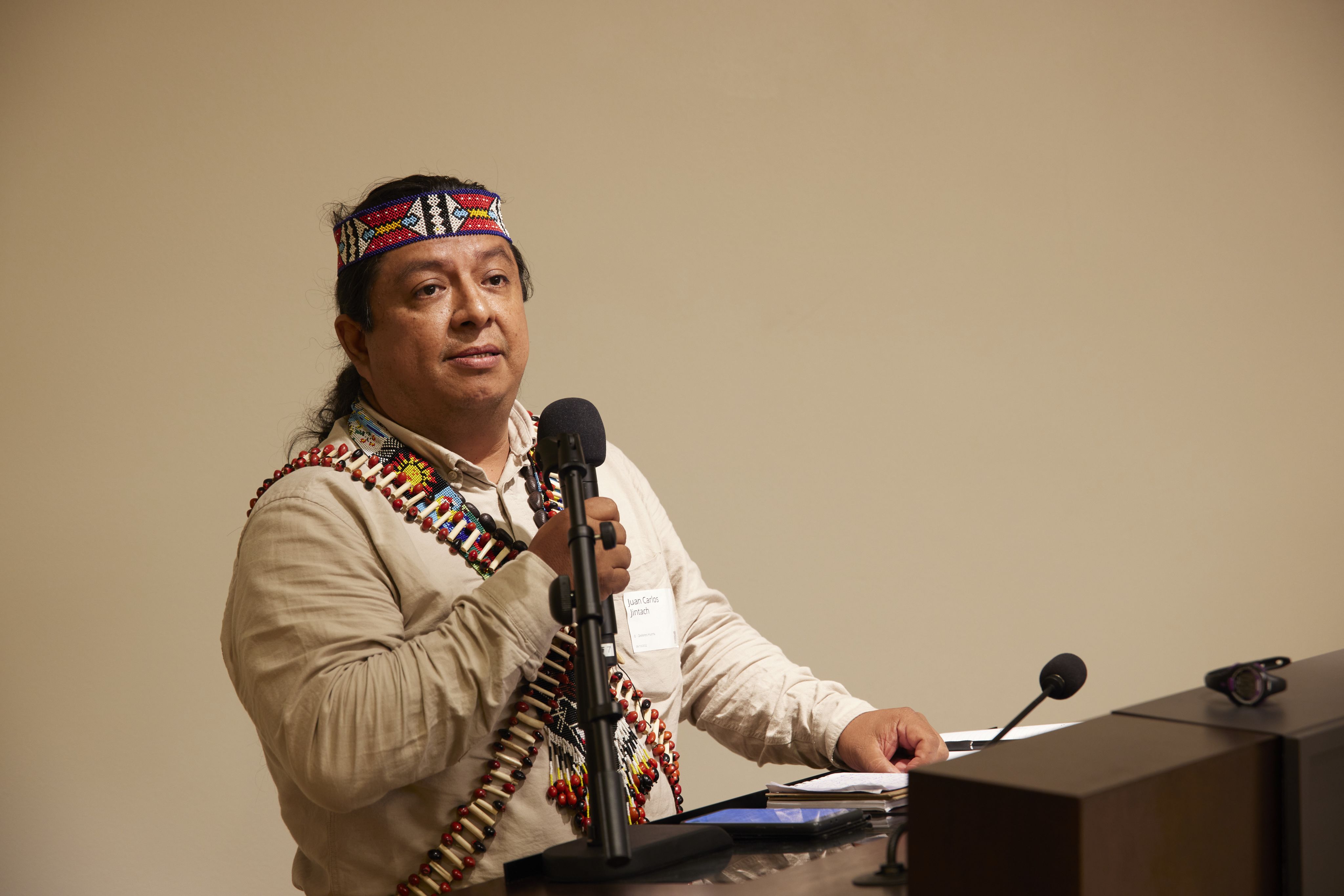
Juan Carlos Jintiach is an Indigenous leader and environmental advocate dedicated to promoting Indigenous Peoples’ rights and representation in the conservation of forests. He is the Executive Director of the Global Alliance for Territorial Communities (GATC), a global political platform of Indigenous Peoples and local communities working to protect Indigenous Peoples' rights and nature conservation.
In 2023, Juan Carlos Jintiach was shortlisted for the Nobel Peace Prize, along with Victoria Tauli-Corpuz. With a deep connection to his cultural heritage and ancestral lands, he has played a pivotal role in bridging traditional knowledge with solutions to confront climate change. As a member of the Shuar Peoples of the Ecuadorian Amazon, he is a vocal proponent for the rights of Indigenous communities, emphasizing the importance of inclusive and respectful collaboration in addressing climate change.
How is climate change affecting your community?
Juan Carlos Jintiach: We, as Indigenous Peoples, deeply connected to our territories and forests, bear witness to the alarming changes unfolding within our lands. We've experienced severe floods, unprecedented temperature increases beyond the norm, and troubling developments affecting our flora and fauna. It's disheartening to observe the ongoing issues, such as the imminent threats related to depleting nature, soil, water, and the pollution of rivers. This isn't solely due to illegal mining or deforestation; it's a pervasive crisis demanding urgent attention.
We find ourselves in a state of emergency, dealing with constant challenges that continue to harm our environment. The cry we raise is a plea for global awareness and action against this impending catastrophe. The continuation of such practices poses a severe threat to the delicate balance of our ecosystems, and it is our responsibility to shed light on these critical issues and demand change from the global system.
What does the forest mean to you and your community?
Juan Carlos Jintiach: Discussing the forest holds profound significance for us, as it is a direct conversation about our essence. We're not just living here; we're a crucial part of the land and the forest. The ecosystems within are an extension of our identity, and detachment is inconceivable. In essence, we are one with the forest.
Our connection to the forest surpasses the understanding of Western society. For us, it encompasses not only sustenance but also serves as the source of life and spiritual nourishment. The forest is not an external entity; it is ours. It embodies our mother, our sister, a spiritual connection that defines our existence. Every tree, every living being within it contributes to our well-being, serving as our pharmacy and maintaining the delicate balance of our mental and spiritual health.
Under these circumstances, we cannot permit the continued destruction and liquidation of these spaces that are intricately linked with our territory. Preserving these sacred areas is not just an environmental concern but a commitment to safeguarding our identity and the wellspring of our physical and spiritual vitality.
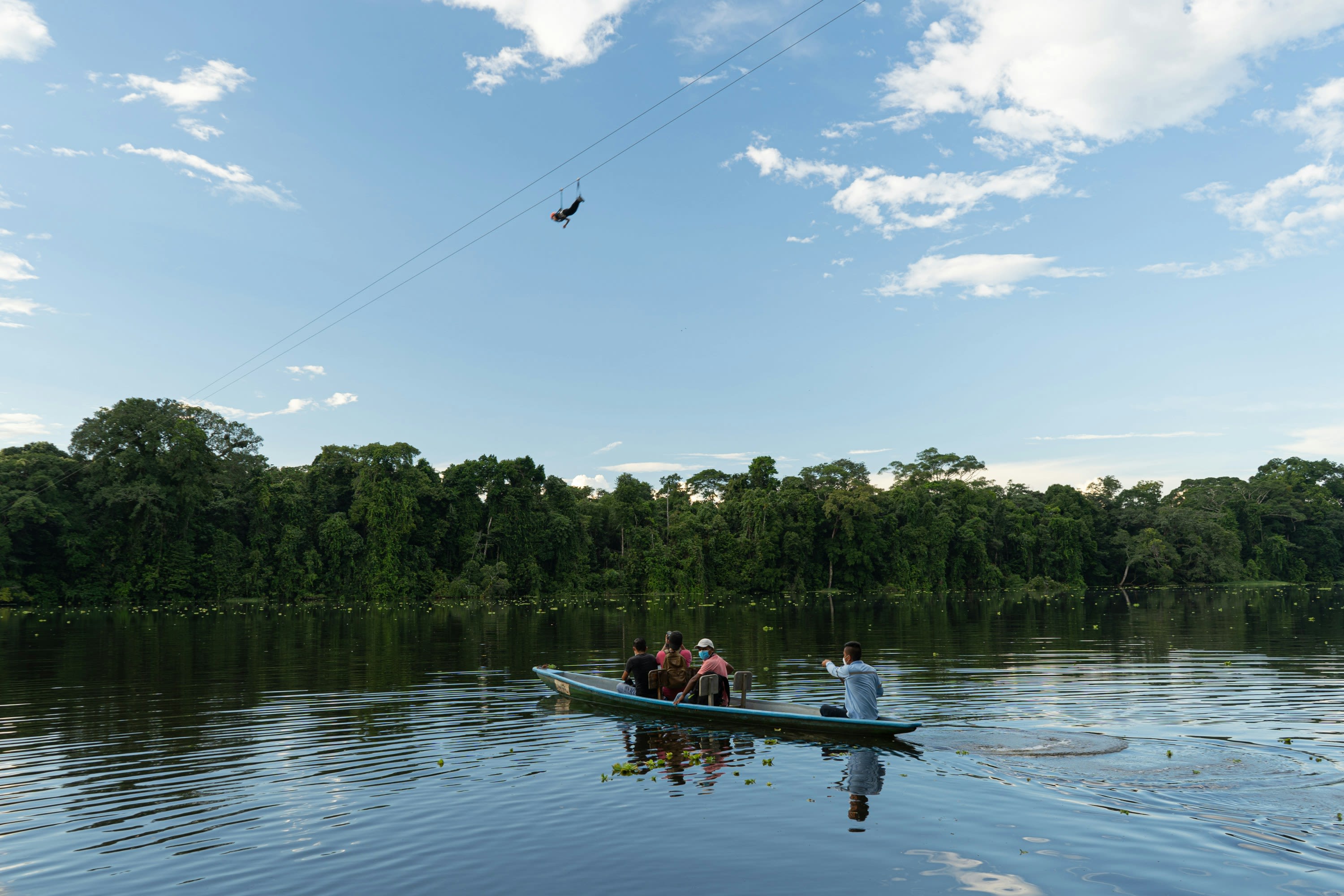
"The forest is not an external entity; it is ours. It embodies our mother, our sister, a spiritual connection that defines our existence."
Juan Carlos Jintiach
What are you and your community doing to fight climate change?
Juan Carlos Jintiach: I, alongside fellow indigenous individuals, represent a crucial part of the communities residing in territories rich with forests and resources. We've tirelessly conveyed our aspirations and propositions, originating from the wisdom of both the elder members, the youth and the women within our communities. Our collective efforts are reflected in comprehensive work and life plans tailored to each people and nationality.
Constant collaboration is our approach as we strive to safeguard these plans and advocate for the protection of the forest. However, it goes beyond mere advocacy; we uphold our unique principles of environmental protection and employ specific protocols to defend nature. Recognizing the intrinsic rights, we acknowledge the rights bestowed upon us by nature, including the rights of Mother Earth. This involves a conscious effort, whether within legal frameworks or on the international stage, leveraging the recognition granted to us as Indigenous Peoples.
In the pursuit of protection, we navigate the international agenda, actively participating and voicing our concerns. Unfortunately, there are instances where our leaders face unjust criminalization and persecution for their defense efforts. In response, we operate in a coordinated manner, aligning with organizations, federations, and local communities across the spectrum, from local to international levels. This united front reinforces our commitment to actively protect, monitor, and care for our invaluable resources, while simultaneously demanding justice and recognition within the international system.
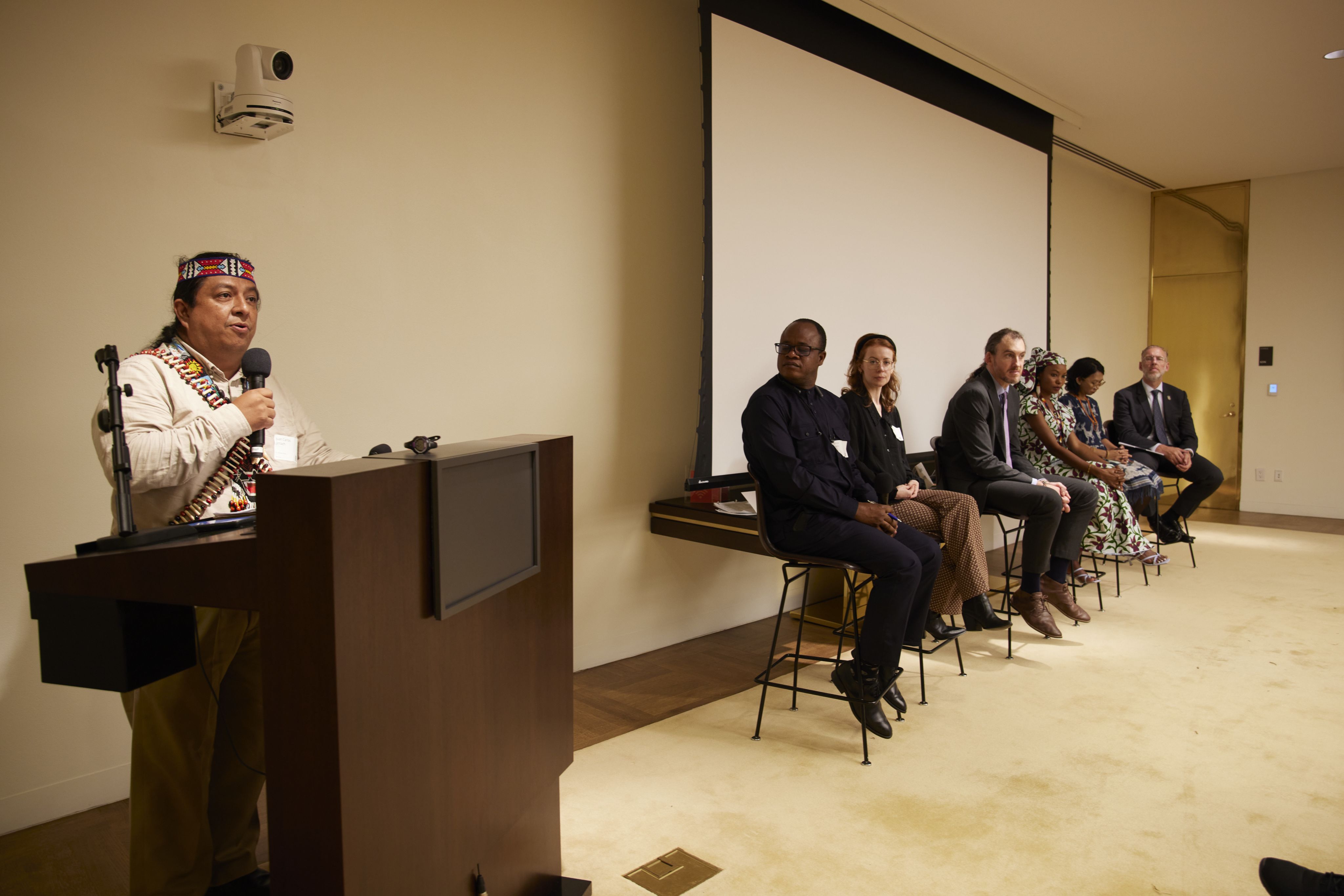
What are the biggest challenges you encounter in your work?
Juan Carlos Jintiach: Consistently, we find ourselves in the position of requesting assistance and collaboration, recognizing the inherent challenges in securing both human and financial support for our territories and communities. Often, public policies are formulated by certain states without genuine consultation with the affected people. Our foremost demand is for respect, urging a collaborative approach that operates on equal footing – a partnership characterized by transparency, thorough information dissemination, and, most importantly, inclusive consultations with full and effective participation.
We advocate for a collaborative model that aligns with established demands and protocols, emphasizing the need for clear communication. This, we believe, is a strategic way to garner the necessary support and assistance, encompassing both human resources and the funding required for the development of high-level proposals and projects. We acknowledge the complexities involved, including challenging formats and the necessity for accompanying conditions that enable equitable access to support and funding.
In this pursuit, we stress the importance of transparent funding mechanisms that prevent resources from getting entangled in bureaucratic hurdles. Our objective is to ensure that financial support directly reaches the territories and Indigenous Peoples, addressing their specific needs and fostering sustainable development without unnecessary delays or obstructions
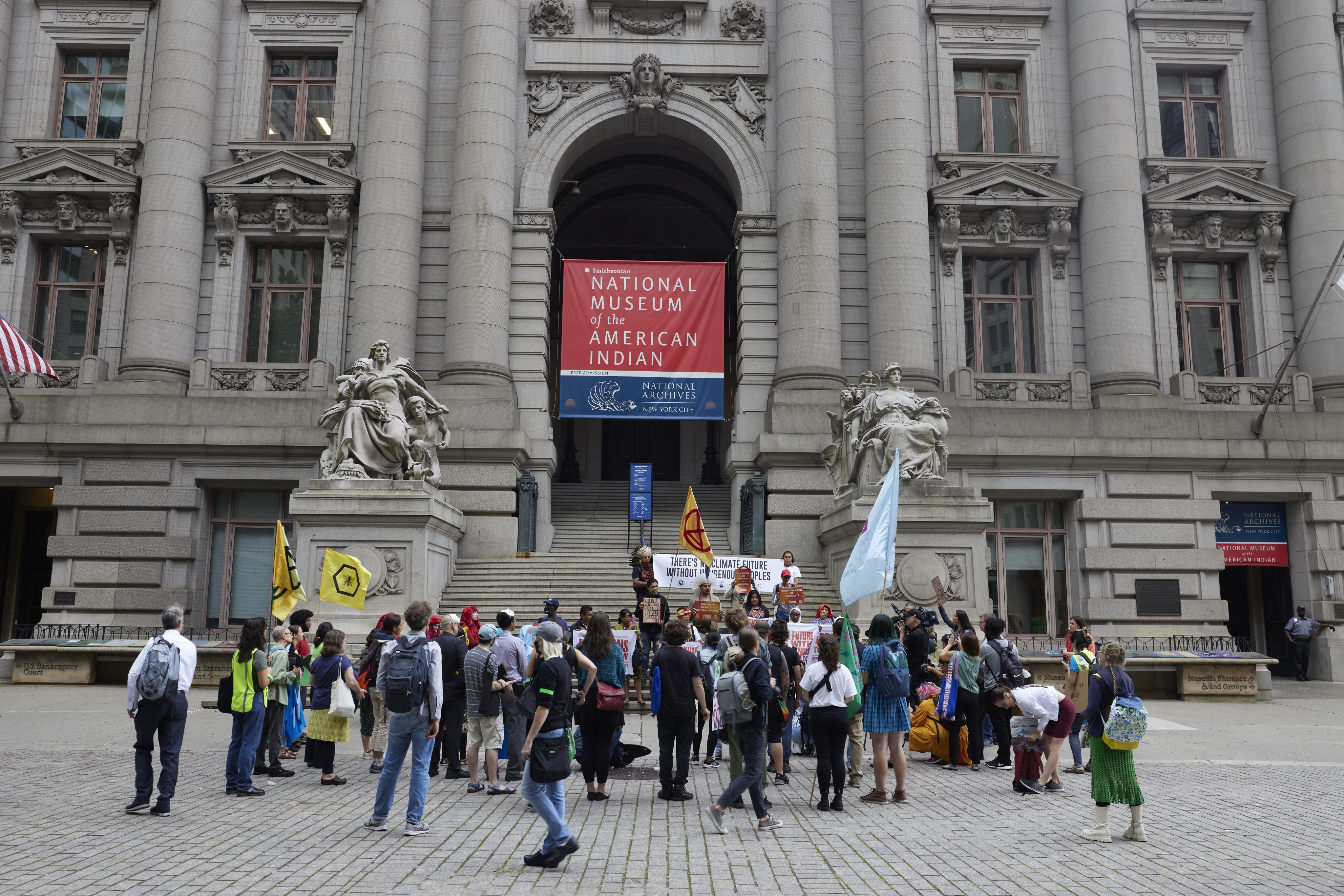
Juan Carlos Jintiach (left) with Indigenous leader Levi Sucre (right) in New York City, September 2022.
Juan Carlos Jintiach (left) with Indigenous leader Levi Sucre (right) in New York City, September 2022.
What are your greatest fears and hopes?
Juan Carlos Jintiach: There is a growing concern, and I find it imperative to address the emerging challenges. It is unacceptable for leaders who advocate for the respect of rights and the necessity for consultations, to face persecution or even lose their lives. Every human life holds immense value, and the pervasive fear surrounding this issue is palpable. We cannot turn a blind eye to the continued atrocities, including murders, criminalization, and persecution in various forms.
It is crucial to emphasize that this situation must change. As we articulate our demands for collaboration, respectful dialogue, and concerted efforts, there is hope that we can initiate a transformative process. It is possible to engage in constructive conversations with diverse stakeholders, whether at the state level or within the multilateral system. The key is to foster an environment of respect, acknowledging our principles and rights.
In this pursuit, I see hope for a collaborative and multidisciplinary approach involving civil society, universities, science, and various actors. We possess inherent capabilities, and with shared information and a level playing field, there is potential for meaningful collaboration. It is essential to persist in our fight, consistently advocating for our rights and actively implementing our proposals. This unwavering commitment ensures that we not only voice our concerns but also work towards tangible solutions and positive change.
How do you consider the potential of carbon markets? What are the different positions of Indigenous peoples regarding carbon markets?
Juan Carlos Jintiach: My foremost recommendation aligns with a principle I have consistently emphasized: the importance of accurate, clear, and transparent information. Indigenous Peoples require a comprehensive understanding of the intricacies involved — why certain actions are necessary, what drives the system, and the dynamics of the game at play. Transparency and justice are paramount for us, especially considering the historical invisibility of our experiences within the territory.
Addressing any issue, including discussions on markets, carbon, and environmental services, requires a foundation built on transparent and unbiased information. We advocate for full, effective participation and consultation from the outset to the conclusion of any process. It's crucial that the information shared is not misleading, allowing us to connect with the rights of peoples and nationalities in a way that respects individual choices.
Within the process, diverse positions emerge, demands are articulated, and opportunities unfold. We acknowledge the diversity of perspectives and resist adopting a biased stance or pushing for decisions favoring specific systems or initiatives. Equally important is our commitment to supporting those who choose not to participate, respecting their autonomy. Collaboration and assistance play pivotal roles, recognizing the inherent risks involved and ensuring clear communication about these risks throughout the entire process. This approach seeks not only to navigate challenges but also to foster an environment of collective understanding, cooperation, and informed decision-making.
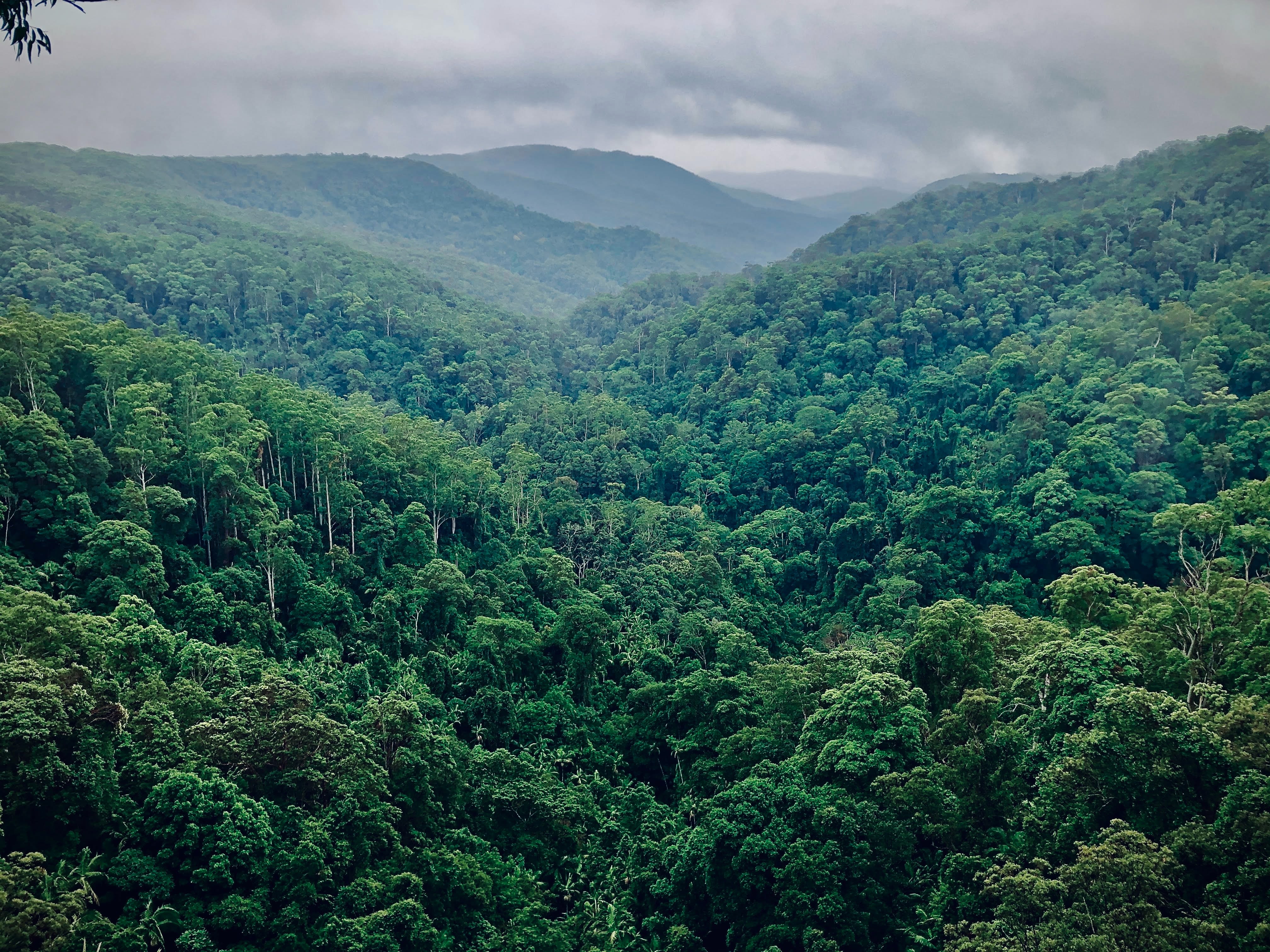
What is your message to world leaders?
Juan Carlos Jintiach: It is crucial to underscore that Indigenous science, along with the voices of Indigenous Peoples and communities residing in our ecosystems, is sounding an urgent call for action. This is not a future scenario; it is unfolding in the present. With the wisdom passed down through generations, our Indigenous elders keenly observe the distressing changes in our ecosystems – rising temperatures, floods, and an overall imbalance indicating a collapsing system.
In response, leaders must act promptly and attune themselves to the resonance of this call. We possess valuable insights and are actively contributing to addressing the crisis at hand. To sustain this collaboration, leaders must not only acknowledge our presence but also actively engage with our proposals. Listening, visibility, and meaningful cooperation are essential to effecting emergent change, avoiding the peril of turning a deaf ear to the urgent issues we face.
It is imperative that leaders fulfill their promises, translating them into tangible actions that benefit Indigenous Peoples and communities. By doing so, we collectively uphold our responsibility to protect and preserve this planet. The time for action is now, and it requires genuine collaboration, commitment, and follow-through on the part of leaders to address the pressing environmental challenges that affect us all.
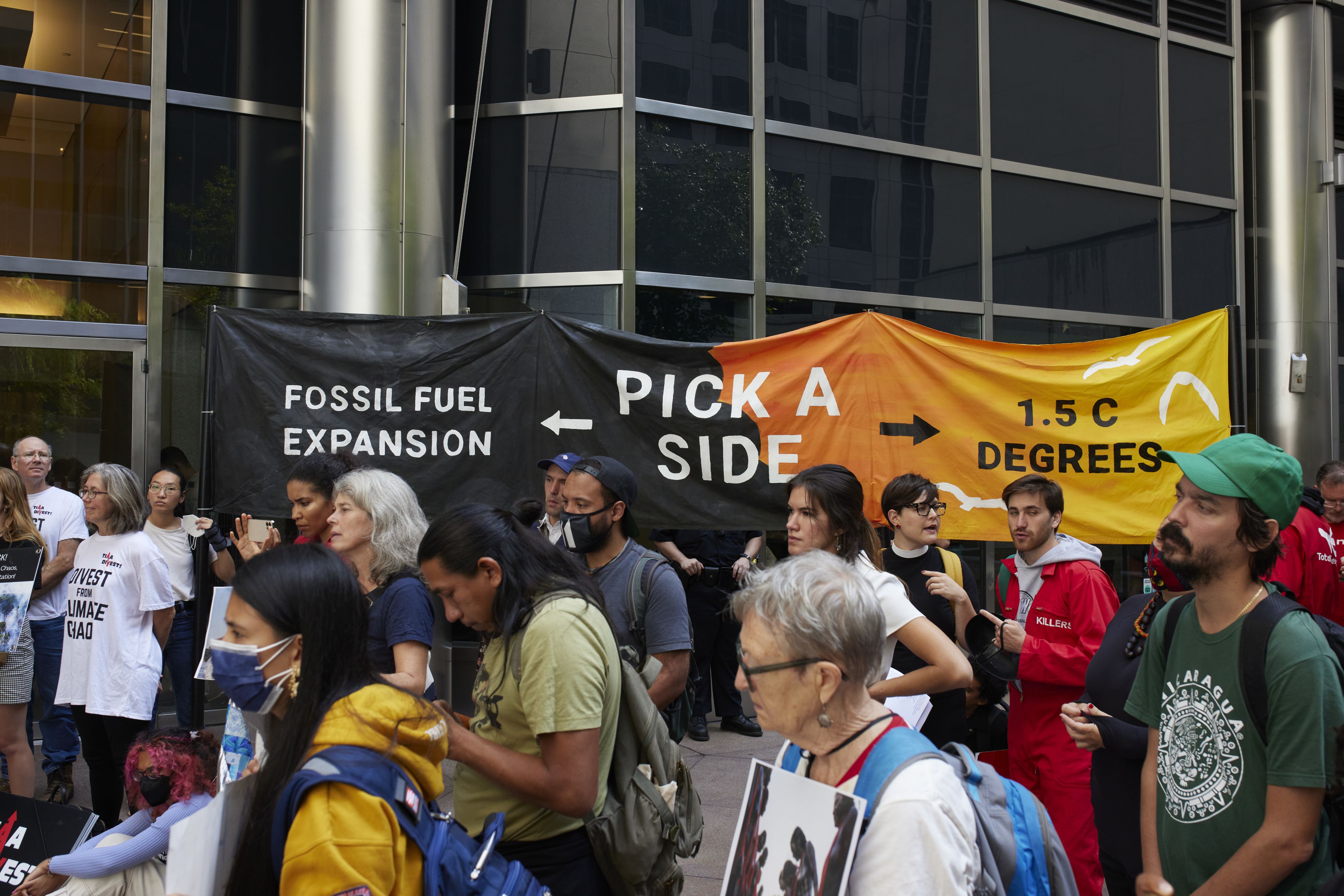
This interview was recorded by UNDP Climate & Forests, with support from the UN-REDD Programme, in September 2022 during Climate Week in New York City.
UNDP Climate & Forests systematically promotes social equity, including the rights, knowledge, and inclusion of Indigenous Peoples and local communities, to ensure forest solutions to climate change contribute meaningfully to delivering on the NDCs and advancing the SDGs.
Photo copyright: UNDP / Colin Morvan, others as indicated
Interview conducted by: Nina Kantcheva, UNDP Climate and Forests
Text editing, translation, layout: Roxana Auhagen, UNDP Climate and Forests
Photo by Rabhimbh Bardhan on Unsplash
Photo by Rabhimbh Bardhan on Unsplash
